Beatrice Cenci (1969)
Directed by: Lucio Fulci
Written by: Lucio Fulci, Roberto Gianviti
Starring: Adrienne Larussa, Georges Wilson, Mavie Bardanzellu, Tomas Milian
AKA THE CONSPIRACY OF TORTURE
Italy
AVAILABLE ON BLU-RAY
RUNNING TIME: 94 mins
REVIEWED BY: Dr Lenera, Official HCF Critic
Rome, 1599. Beatrice Cenci, her stepmother Lucrezia, and her brothers Giacomo and Barnardo are awaiting their fates on the morning of their execution for the murder of the siblings’ father, Francesco Cenci. He was a rich landowner and a tyrant who was hated by everyone including his own family, especially Beatrice whom he placed in solitary confinement for deciding to become a nun. Francesco fell to his death from the battlements, but it’s obvious that his family is involved, as are Beatrice’s servant boyfriend Olimpio and bandit Catalano. But who did what, and what did Francesco do to finally push Beatrice and co. over the edge….
Lucio Fulci is forever associated with horror, but he also made films in other genres: western, science fiction, comedy, sexploitation, even the family animal-centred movie, as hard as the latter might be to imagine. A while back I reviewed his bizarre sword and sorcery pic Conquest. And I shall attempt to cover the other films if they are available, but I very much doubt any of them will be as good as Beatrice Cenci, Fulci’s one foray into historical drama, and the film that Fulci said was his favourite of his own works when he wasn’t mentioning Don’t Torture A Duckling [interesting how both films very unflatteringly portray the Catholic church, obviously a major bugbear of Fulci’s]. I first saw this one a few months ago on the German DVD release, but almost immediately after that 88 Films announced it on Blu-ray, which is sod’s law especially as the DVD wasn’t cheap. But in the end I was happy to have it now in a much better looking copy, and also to hold off on my review until I’d watched it again in this version. I remember very much looking forward to watching this one for the first time, and it certainly didn’t disappoint, though don’t expect to be entertained in the conventional sense, because this is a really angry and rather upsetting piece of work that wants you to feel angry and upset at the abuse of power and the attitudes of the authorities. It also wants you to concentrate greatly, because if you’re not focusing then it’s easy to get lost especially as its frequent time jumping isn’t signaled visually, even if the non-linear storytelling ends up adding immensely to its power. And it contains what to me is Fulci’s second most powerful moment [the first of course being that incredibly drawn out murder scene in Don’t Torture A Duckling], a scene that almost brought tears to my eyes, and this one isn’t even violent, though, while it’s certainly not a gorefest, there is some rather nasty stuff in the film. But the whole thing is proof of how good a filmmaker Fulci could be, which makes it even sadder when his work suddenly dropped in quality around the mid-80s.
The cruel Count Francesco Cenci was indeed murdered in real life, and it was members of his family who did the deed, including his daughter Beatrice whom he or may not sexually abused, and who had a secret lover who aided the conspirators. The trial was big news and Beatrice quickly became a symbol to the people of Rome of resistance against the arrogant aristocracy, though she and some members of the family were still executed. The Catholic Church promptly and rather cynically made her a saint. Supposedly every year on the night before the anniversary of her death, her ghost comes back to the bridge where she was killed, carrying her severed head. The tale has been retold in many forms and there were four previous movie versions in 1909, 1926, 1941 and 1956, the last one directed by Riccardo Freda. Dino de Laurentiis wanted to film it in 1969 with a huge budget starring Christopher Plummer, but Fulci’s version beat it into production. He’d mostly directed comedies up to now and one western, though just before he’d made Perversion Story, a semi-giallo that did well internationally, so he got his highest budget for Beatrice Cenci. The screenplay by Fulci and Roberto Gianviti sticks pretty closely to the events, only seeming to embellish when certain facts aren’t known for sure. Much of the film was shot at Castello Odescalchi di Bracciano, Rome, the same castle where Tom Cruise and Katie Holmes got married! Fulci and star Adrienne Larusso didn’t get on, especially when she refused to appear topless. Fulci got his revenge by using a chubby girl with facial hair as a stand-in! During production, Fulci’s first wife committed suicide by putting her head in an oven, though he still finished the film even though it seems that it was rushed towards the end of production. It was a success in Italy despite walk-outs and protests outside cinemas by those offended by its portrayal of the Church, and even got a cinema release in the UK where only some decadent partying was removed by the BBFC, though there wasn’t a US release though until 1976 where it came out as The Conspiracy Of Torture.
The titles slowly unfold over the construction and preparation of a gallows where we’re allowed to focus on little details, like the worker who takes from some water intended for the Cencis, and the Cenci supporters chugging uncomfortably at their costumes in the heat. But then this film is full of attention to detail and little things like this, like the scene with the judges that follows where tiredness, boredom and sweat dripping are apparent. Some brief narration adds to the part documentary feel and informs us that Beatrice and Lucrezia are too be beheaded, Giacomo is to be hung drawn and quartered, and Barnardo, who’s still a young boy, has to sit at the front and watch the whole thing, while the Church takes everything the Cencis own. Then a procession of chanting priests, looking very forbidding as they gradually appear at the end of a hallway, arrive to torment the prisoners rather than try to give them some comfort just before their deaths. The first flashback then begins as we pan up a wall to reveal Francesco and an aide watching a man being ravaged by dogs in early ‘shakycam’ style. It’s not that gruesome, but a close-up of a torn throat and loads of blood staining the white ground certainly show that Fulci was already interested in this kind of thing. Why is this happening? It’s because Francesco kidnapped the man’s 14-year old daughter, then when the father tried to rescue her he threw him to the dogs and burned down his house with his wife in it. Immediately this is a person whom you can’t help but hate, and he never seems to have any redeeming qualities even later. I mean this is a man who, when he learns that two of his sons have been killed in battle, throws a party to celebrate that he now has even more money! Georges Wilson is fine in the part though is saddled with a rather weak voice in the otherwise pretty good English dub.
Francesco has a third of his property taken off him but is allowed to continue as before, after which we flash forward, but this time to just after Francesco’s murder and the subsequent investigation that ensures. Prepare for some grueling torture stuff as poor Olimpio is stretched on the rack and has hot coals placed on him, after which we get the film’s most devastating cut that shows us him in bed with Beatrice who’s coercing him into doing something though won’t say what it is – though we certainly know. It seems that Beatrice allowed the smitten Olimpio to sleep with her so she could get him to help kill her father, and it’s suggested he’s been made a fool for love. Their final scene together, where both of them mustn’t give themselves away yet both know it’s the last time they’re see each other, is immensely powerful and moved me greatly, what with the way Beatrice takes her leave of him unemotionally though her eyes seem to display – possibly?….some feeling while Olimpio, sprawled on the floor basically dying, gazes after her, totally enraptured in ultimate romantic despair. We’re never sure about how she feels about him and Fulci and Gianviti refuse to give us an answer, providing her character with much ambiguity. Her attitude during the eventually shown murder [an interestingly manipulative sequence anyway because you’re enjoying seeing this horrible ogre get his just desserts], even deriding Olimpio and Catalino the bandit who’s also aiding them when they hesitate in carrying out the act, is astoundingly cold. Saying that, when we do eventually see the specific thing that led to all this, it’s hard not to sympathise. While not shown in detail, the emphasis on sweat dripping onto Beatrice’s stomach somehow suggests things well enough as well as taking the film’s emphasis on sweat about as far as it can go, and it’s still a very strong and daring scene for the time.
Other atrocities include a nail into an eye which must be Fulci’s first depiction of eye violence [and which replaces bludgeoning by a hammer which is what is supposed to have actually happened], though it’s only partly shown, and Beatrice having her head squashed in torture, which actually made me thankful that the executions aren’t shown, and the story would still hit you hard even if Fulci had adopted a tamer approach. Meanwhile some topless nudity seems neither erotic nor gratuitous, just enhancing the un-glamorous feel what with the way the period and setting are depicted with a relative lack of bright colours in the costuming, this castle looking distinctly dirty and poorly looked after, and the “women as meat” attitude shown by Francesco and others like him. And the Church is shown to be little better. The only reason it seems to be involved in the case is so it can appropriate the Cenci fortune, and even when the public show support for Beatrice they still show a lack of compassion. Their attitudes go totally against the teachings of Christ and I don’t think that you have to be an atheist to feel Fulci’s anger. Yet he was just as invested in the film itself as in what he was trying to say with it. There are a lot of deliberately off-kilter shots of two characters in the same frame, one far closer to the viewer, and often shot with a split diopter so it sometimes looks like we’re watching a John Frankenheimer film. There’s also some rather comic booky-style frames, especially at a dinner scene towards the end, plus lots of smooth pans from cinematographer Erico Menczer – and very few of Fulci’s usual zooms. Despite there being a lot of chat, the film isn’t static at all due to the filming style. The music score by Angelo Francesco Lavagnino and Silvano Spadaccino maybe over-emphasises its plaintive main theme, but in general prefers to be subtle, low-key. After all, the images didn’t really need much enhancing musically.
Of course it all wouldn’t work as well as it does without Adrienne Larusso’s very modern-seeming performance which avoids histrionics and seems to convey so much pain even though we’re certainly not hearing this New York-born actress’s [chiefly known for TV, though she did have a tiny role in The Man Who Fell To Earth performing in a scene with disturbing if totally unintentional links to one of her scenes in this film] actual voice in the English language. The only possible real flaw with Beatrice Cenci is that it’s just so grim, with little real light in it, but then neither are Witchfinder General or The Crucible which some may recall as they watch this film. Some first time viewers may find the time jumping puzzling, as indeed I did – but really it’s an important ingredient in the way it reveals more and more and even lets us develop characters in the way a more conventional narrative may not have done so as well. And after all, little is straight forward here, even the ‘love’ story. Made with care [is this really the same filmmaker who gave us Demonia?], impassioned yet thoughtful, Beatrice Cenci is so good that you’d have thought that its director would have gone on to have a great and lengthy career as a famous and well respected Italian filmmaker able to command big budgets. Sadly, despite still managing to turn out much fine work, this wasn’t the case. It’s possible that this might have been partly due to some high up and very religious members of the film industry who almost certainly prevented Beatrice Cenci from being nominated for awards. In any case, this film is without doubt one of his major works artistically, and if you’re interested in Fulci than you’ve just got to check it out even though it isn’t horror – though it’s certainly horrifying.

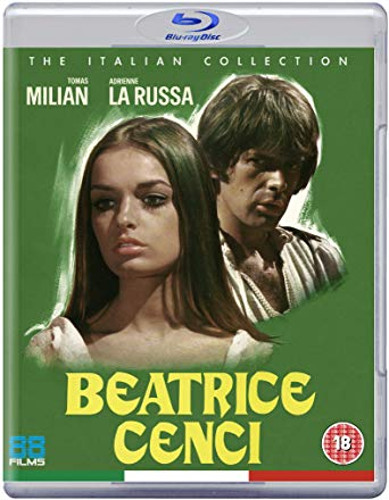
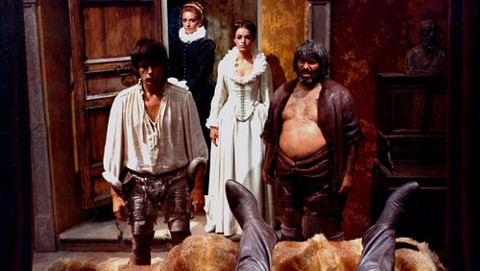
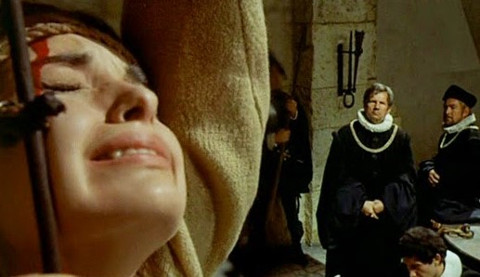



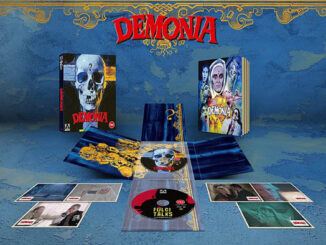
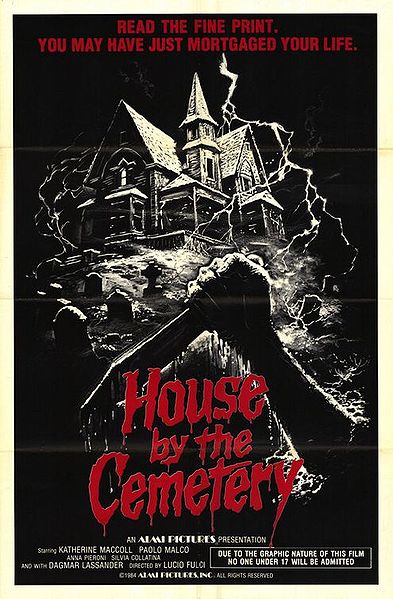
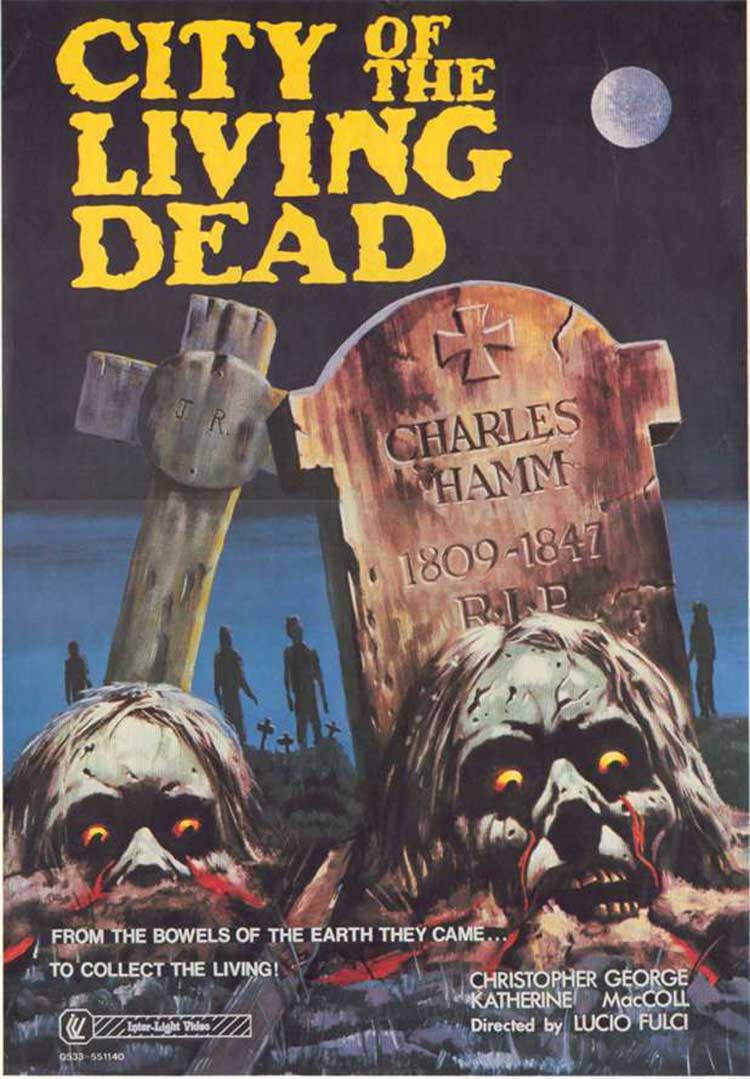
Be the first to comment